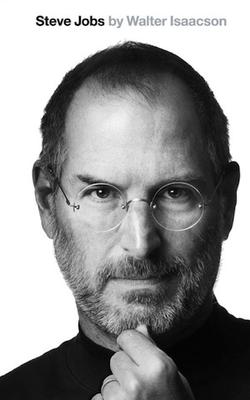I've never personally met Steve Jobs. I very nearly had an opportunity last summer when I was an intern at Apple. Apple puts on an executive speaker series for the interns, where each one of the executive team takes an hour to speak to the all of the interns. One morning, we learned Steve Jobs wanted to speak to us, so we all rushed to the Town Hall. Chatting excitedly about what he would tell us, and what questions we asked, the hype in the room reached a peak 5 minutes before he was supposed to take a stage. It was then that someone came on stage to announce Steve had cancelled at the last minute. Disappointed, we all left. It was less than three months later that he passed away.
During my time at Apple, I did have a chance to hear from several different long-time employees who related personal stories involving Steve Jobs. My eyebrows were always raised at these stories, incredulous at how callous and harsh he could be. Though Apple stood as the world's most valuable company just before he passed away, many agree he wasn't the best manager. He was brutally honest, thought very differently from the average person, and was the driving force behind some of the best products we've ever seen. Walter Isaacson states that Jobs revolutionized seven different industries:
- Personal computers
- Animated movies
- Music
- Telephones
- Tablets
- Digital publishing
- Retail stores
Ever heard of Pixar? Steve Jobs bought the company from George Lucas, kept it afloat with his own money, was the CEO who negotiated Pixar's first contract with Disney, and saved Toy Story and Pixar from being butchered by Disney.
Walter Isaacson's biography talks about the amazing accomplishments of Steve's lifetime, but brings to light many of his eccentricities. He would go on strict all-carrot or all-apple diets, or other vegan regiments, and believed such diets meant he did have to bathe as often or wear deodorant. Many of his colleagues begged to differ. He was adopted, and always felt a little abandoned, yet ended up doing the same thing when he got his college girlfriend pregnant and then later her left her. He was known to have a reality distortion field, causing those around him to believe the impossible and commit to unrealistic deals or deadlines. From the very beginning he somehow sensed he would die early, and so felt compelled to change the world and accomplish what he could before his time was up. He was very into Zen Buddhism, and was never into philanthropy like his rival of old, Bill Gates (who was born the same year as Jobs in 1955).
One of the great themes of the book is Open vs. Closed. Steve Jobs was always an advocate of a closed system. His desire for complete control was reflected in all of his products. Rivals Microsoft, and later, Google, bet on open systems instead. Just before Steve Jobs passed away, Bill Gates visited him in his home in Palo Alto. There, each of them conceded that the other's model worked. However, separately, each added a caveat. Bill Gates said Steve's integrated approach only worked when Steve was at the helm, and Steve said Bill's approach worked, but "it didn't really make great products. It produced crappy products." I, for one, agree. As a result of Apple's end-to-end control, they can impose simplicity, and as the astronomer Johannes Kepler (and Steve Jobs) declared, "nature loves simplicity and unity." Walter Isaacson summed up the result nicely:
"Using an Apple product could be as sublime as walking in one of the Zen gardens of Kyoto that Jobs loved, and neither experience was created by worshipping at the alter of openness or by letting a thousand flowers bloom. Sometimes it's nice to be in the hands of a control freak." (Isaacson 564)
If you're looking for a good summary of what the biography covers, check out the interview 60 Minutes did with Walter Isaacson: http://www.macrumors.com/2011/10/23/the-full-walter-isaacsonsteve-jobs-interview-from-60-minutes/. Of course, it's just a teaser. Really, you should read the book. Whether or not you admire or respect Steve Jobs, it is indisputable that he was one of the most (if not the most) influential men of our time. He built two of the most valuable and trusted brands of our age: Apple and Pixar. He revolutionized multiple industries. He taught people to think different, and certainly did so himself. No matter what you think of Steve Jobs or Apple, Walter Isaacson's biography is the must-read book of our age.


No comments:
Post a Comment